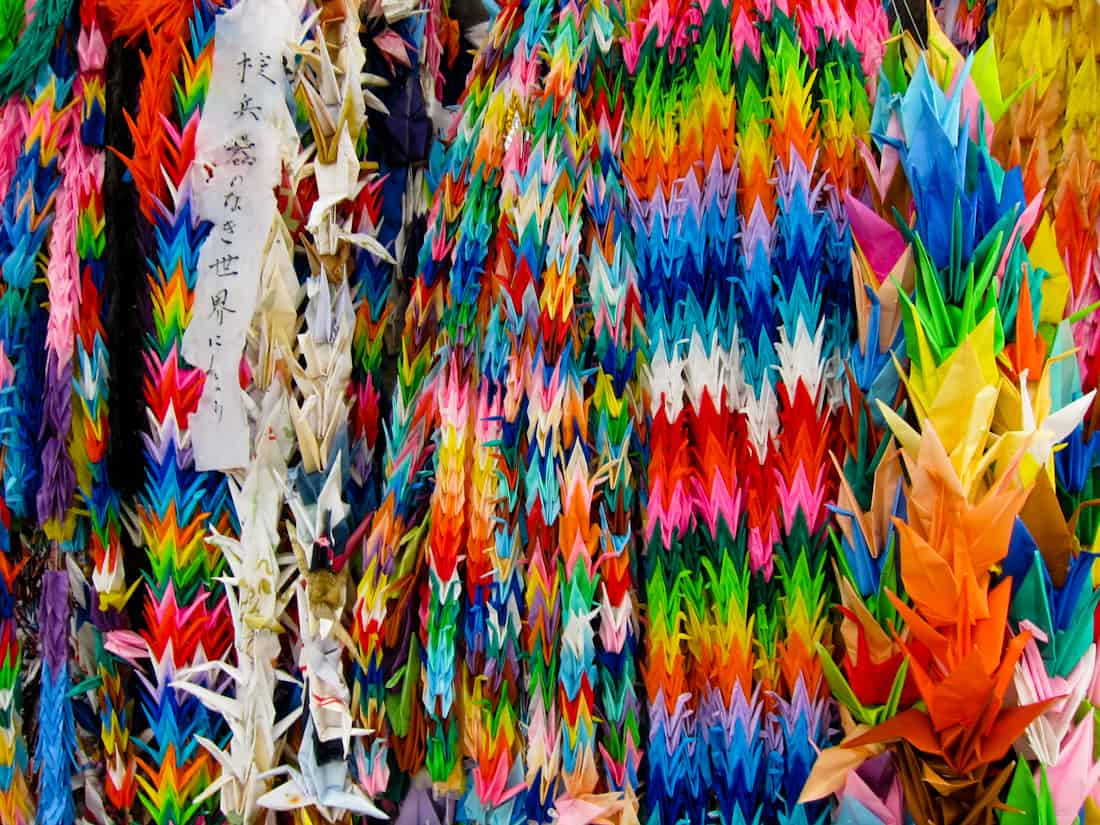This page contains affiliate links. Please read our disclosure for more info.
On the 6th August 1945, ‘Little Boy’ exploded directly above the Hiroshima Prefectural Commercial Exhibition Hall instantly killing everyone inside. The crumbling skeleton of the building stands as a haunting monument to the tens of thousands that died immediately and in the decades that followed.
Wandering through the Peace Memorial Park, it’s easy to feel impotence at the lack of power one has to put a stop to the tireless stupidity of prejudice and hatred on both sides of any dispute, whether or not it leads to such devastation. Unfortunately, these feelings seem to permeate so many of us as human beings to the point where they are too easily invoked to gain political capital throughout the world.
The only real temperance is education. We each have a duty to learn from the mistakes of the previous generation; to sidestep the reptilian instincts and to have the courage to live up to the better nature that exists in all of us as a virtue of simply being people.
Richard Dawkins’ The Selfish Gene notes that, despite our bodies being nothing but vessels for our genes, we have developed a consciousness that is not bound to the relentless pursuit of immortality that these genes are engaged in. Our ability to empathise with other beings—to try and make some sense of the vastness of our universe and our place within it—is a strength that not only helps keep us alive (shown by the fact that it still exists as a trait in the gene pool), but can also temper the widespread destruction that we are capable of.
But the relatively recent development of consciousness goes against emotions and hormones that have helped our survival and evolution for thousands of years. It’s too easy for those with political ambition to fulfil their goals of power through the use of hateful rhetoric toward that most primal of fears: the Scary Unknown Other—the bear outside the cave.
As necessary as World War II was, good and evil cannot be simply split along battle lines. Accepting as a premise that the young children of even our enemies have an innocence that should be protected (you are entitled to believe that war justifies the killing of children. I do not.), you can’t help but feel a sense of frustration at the realisation that one cannot, easily, change the world overnight.
This frustration is often powerful yet short lived as one returns to normal daily needs and wants that fight for our attention. It’s impractical to think that we could ever make a huge difference to such a seemingly complex issue as nuclear proliferation.
However, hatred and, by extension, violence are not binary. They exist along a continuum. We may not be able to bring peace to the world, but we can certainly bring more peace to our daily lives. We will be wronged and wronged again but if there is anything practical that can be learned from monuments such as this, then it is that we must do everything we can to absorb the wrongs committed against us as best we can in order to increase the net amount of goodwill in the world.

Simply feeling more anger and helplessness in the face of the horror displayed at the Hiroshima Museums—while indicative of a just and noble heart—are ineffective agents of change by themselves: the message must be interpreted to a more realistic scale.
Just as a country’s reaction to an attack might be with horrific and devastating force, so might my reaction to a perceived slight—especially in a country whose people and customs I do not fully understand—be entirely overblown and unnecessary.
Instead, these testing moments should be treated as what they actually are: an opportunity to realise my full potential as a human being.
